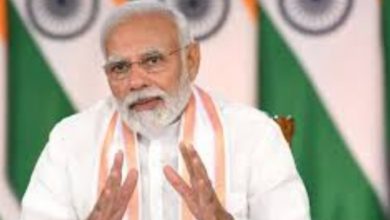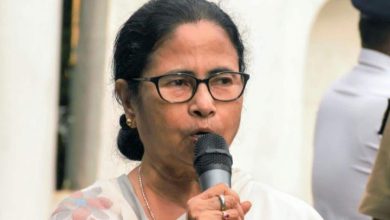Behind DMK’s big win in urban polls: Steady allies, a dispirited Opposition

WHILE THE ruling party’s victory in the local body polls isn’t a first for Tamil Nadu, the magnitude of the DMK’s landslide win in the urban body polls held on Sunday has taken all political parties surprise.
While a final picture is yet to emerge – indirect polls are yet to be held to elect mayors and council heads – in all likelihood, the DMK is set to rule all the 21 city corporations, not less than 128 of the 138 municipalities, and at least 400 of the 489 town panchayats. While the DMK walked away with a vote share of around 60 per cent, ally Congress too put up a decent show, bagging 4.6 per cent of the votes.
For DMK chief M K Stalin, this unprecedented victory means more responsibilities considering the Lok Sabha elections are at least two years away and the challenge would be to retain until then the goodwill the party evidently has among voters now.
While there were a number of factors that worked in the DMK’s favour – from a steady alliance with the Congress, Left parties and Thol Thirumavalavan’s Dalit party VCK, to the popular schemes announced the party since it came to power in 2021, and the advantage of having the government machinery at its disposal – the single biggest factor was that the Opposition AIADMK put up no real fight.
The party, which hasn’t quite recovered since party supremo J Jayalalithaa’s death in December 2016, has seen a string of major poll defeats – the 2019 Lok Sabha and rural body polls, the 2021 Assembly elections and the second phase of rural body polls in 2021.
While the AIADMK put up a brave face, with senior leader O Panneerselvam calling the DMK’s victory “artificial”, the party lost both Periyakulam municipality, part of Panneerselvam’s home town, and former CM Edappadi Palaniswami’s Edappadi municipality in Salem drict.
A senior AIADMK leader, who was part of Palaniswami’s Cabinet, said the defeat calls for introspection. “What we need is introspection – nothing more, nothing less. Is our problem that of double leadership (Edapadi and Pannerselvam)? Or is the alliance with the BJP costing us our secular, minority followers?” he said.
Another senior AIADMK leader said the party’s shrinking base is a cause of concern. “Over the years, MGR and Jayalalithaa built an assured vote share of 20 to 25 per cent. We maintained this vote share, irrespective of whether we won or not. It has gone down to 16 per cent this election. This means there is something seriously wrong with the party,” he said, warning the party may face a “slow death” if corrections were not made. “You cannot run a party without a leader. You cannot run a party flaunting your connections with the leader of another party in Delhi,” he said, referring to the BJP’s influence on the AIADMK leadership.
This election, the BJP made a friendly exit from the AIADMK alliance to contest the urban local body polls on its own – a decision that may have backfired.
While BJP state chief K Annamalai is claiming credit for the party having emerged as the third-largest in the state, the BJP’s performance this election – it won 308 seats from among the 5,000-odd seats it contested – is only marginally better than its showing in 2011. That election, the party won 226 wards (including rural local bodies). But as a BJP leader pointed out, the situation was vastly different then. “We were neither in power in Delhi then nor did we enjoy the backing of a powerful Dravidian party (AIADMK) like we do now,” said the leader.
A BJP leader from central Tamil Nadu pointed out that in nearly 100 wards, BJP candidates got less than 10 votes.
“When a candidate is required to have signatures from about 10 people to submit nominations, why did they fail to get even 10 votes in these wards? We didn’t win a single seat in at least 10 dricts. What went wrong in western Tamil Nadu and Coimbatore?” he said. Former state chief L Murugan and present state leader K Annamalai hail from western Tamil Nadu.





